Doctor en Ciencia Animal, con énfasis en genética cuantitativa y modelación. Formación profesional en Zootecnia. Profesor Investigador del grupo de investigación Ciencia Animal en la Facultad de Ciencias Agropecuarias de la Universidad de Ciencias Aplicadas y Ambientales U.D.C.A. Investigación en metodologías de genética cuantitativa, de poblaciones y el uso de información genómica para programas de mejoramiento genético de especies domésticas, principalmente en bovinos, peces y especies menores. Dirección de proyectos de investigación a escala nacional con la participación de instituciones educativas y de investigación como la Universidad Nacional de Colombia, Universidad de Antioquia, Universidad de Massey (Nueva Zelanda) y la Corporación Colombiana de Investigación Agropecuaria AGROSAVIA. Consultoría y asesoría a la asociación de criadores de ganado Simmental y Simbrah de Colombia (Asosimmental) a través de análisis de variabilidad genética, patrones de ancestría, evaluación genética con inclusión de información genómica y el desarrollo de índices de selección soportado en metodologías bioeconómicas para optimizar el progreso genético y económico de características asociadas a producción de carne y leche.
GRUPOS DE INVESTIGACIÓN: CIENCIA ANIMAL
LÍNEAS DE INVESTIGACIÓN: Salud Humana y Animal y Sostenibilidad Ambiental
LINEAS DE TRABAJO: Genética Cuantitativa, Modelación y Estadística, Selección Genómica, Genética de Poblaciones.
PRODUCTOS DESTACADOS
A new selection criteria to optimize growth in animal breeding programs
Fecha de publicación: 30/04/2024
El objetivo de esta investigación fue proponer un nuevo criterio de selección, el Área Bajo la Curva de Crecimiento (AUGC), derivado de un modelo basado en curvas de crecimiento. Se empleó un enfoque bayesiano jerárquico con dos niveles. En el primer nivel, se modeló la trayectoria de crecimiento utilizando un polinomio de cuarto grado, mientras que en el segundo nivel, cada parámetro de la función polinomial se trató como una variable dependiente influenciada por efectos ambientales y genéticos. El modelo animal incluyó sexo, paridad de las madres y grupo contemporáneo (rebaño-año-temporada) como efectos fijos, y relaciones entre animales como efecto aleatorio. La inferencia se realizó utilizando el algoritmo de simulación Markov Chain Monte Carlo (MCMC). El AUGC propuesto es interesante para su uso en programas de selección porque permite a los criadores identificar animales más pesados con menor riesgo en el sistema de producción. Además, esta característica mostró heredabilidades moderadas a altas desde el destete en adelante, proporcionando una nueva herramienta útil para la selección de ganado en las fases posteriores al destete.
Más información ⇨
- « Anterior
- 1
- 2
- 3
- 4
- …
- 11
- Siguiente »

